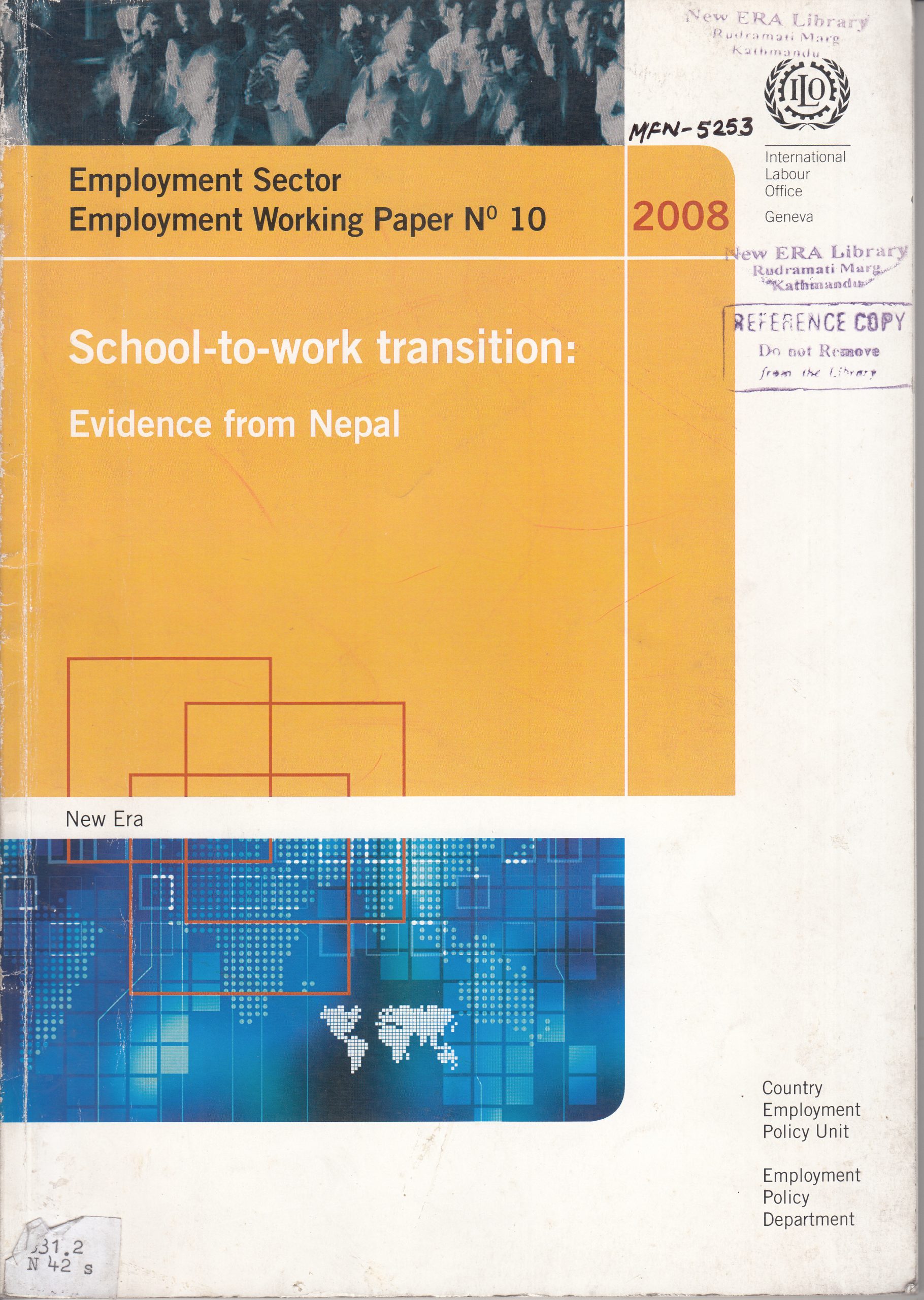This study sponsored by the Japan Society for the Promotion of Science (JSPS) assesses the income, employment, technological level and gender differences in various income generating activities of the people in rural Nepal. The major income generating activities in the Nepalese countryside have been classified into four broad categories – agriculture, industry, commercial services and public services. This study also tries to uncover gender differences in each activity.
Report Type: Human Resource
School-to-work Transition Survey (SWTS) Among Youth in Nepal
This study inspects young Nepalese making the transition from school to work. The survey looks at young people in three age brackets (15-19 years, 20-24 years and 25-29 years) at various stages of transition: (i) Not transited: Still in school with no intention of seeking a job; (ii) In transition: Not in school, unemployed or looking for a regular job; and (iii) Transited: Employed in a regular job. The “transited” category is further broken down into those finding the transition (i) Easy, (ii) Middling, or (iii) Difficult. Information on possible influencing factors including gender, education level, social status and economic situation of the young people were collected.




